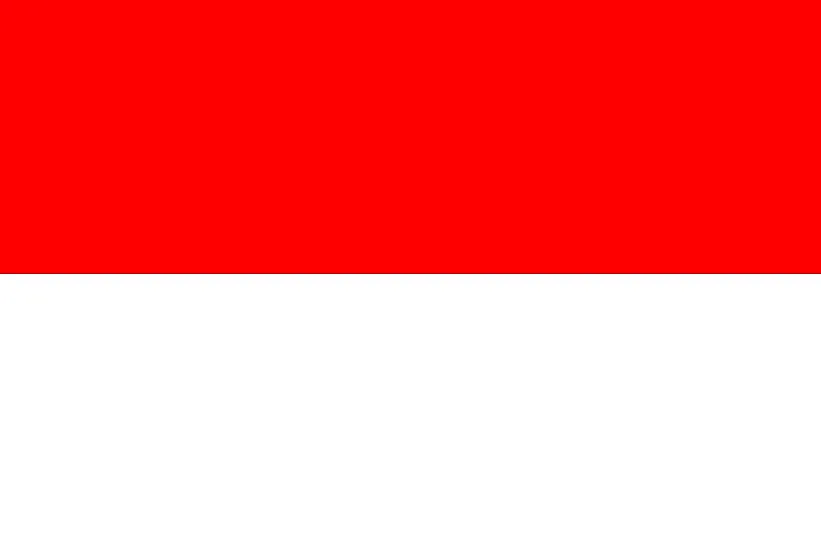
인도네시아
| 대륙 | 아시아 |
| 자본 | 자카르타 |
| 인구 | 258,316,051 |
| GDP | $3.03조 |
| 1인당 GDP | $11,700 |
| 다이얼링 코드 | +62 |
| ISO 코드(2글자) | ID |
| ISO 코드(3글자) | IDN |
인도네시아 풍경






인도네시아 소개
수천 개의 섬에 걸쳐 다양한 문화가 펼쳐지는 세계 최대의 군도 국가인 인도네시아에 오신 것을 환영합니다. 17,508개의 섬에 약 2억 7,350만 명의 인구가 살고 있는 인도네시아는 놀라운 생물 다양성과 풍부한 문화유산을 결합하여 "적도의 에메랄드"라는 별명을 얻었습니다.
지리적 특징과 자연의 아름다움
인도네시아의 지형은 적도를 따라 5,000킬로미터 이상 뻗어 있는 군도 전체에 걸쳐 놀라울 정도로 다양합니다. 인도네시아에는 자바, 수마트라, 보르네오(칼리만탄), 술라웨시, 뉴기니(파푸아)와 같은 주요 섬을 포함하여 17,000개가 넘는 섬이 있습니다.
활화산, 열대 우림, 산호초, 다양한 해안 환경이 어우러진 풍경이 펼쳐집니다. 불의 고리 지대는 극적인 화산 지형을 연출하고, 월러스 라인은 아시아와 호주의 독특한 동식물을 구분합니다.
보호 지역에는 유명한 코모도 드래곤이 서식하는 코모도 국립공원과 수마트라 열대우림 유산이 있으며, 오랑우탄과 기타 멸종 위기종의 중요한 서식지를 보존하고 있습니다. 적도에 위치한 인도네시아의 위치는 놀라운 생물 다양성을 뒷받침하여 인도네시아를 세계적인 메가다양성 국가로 만들었습니다.
문화 유산과 전통
인도네시아 문화는 예술, 음악, 무용 등 각기 독특한 전통을 가진 300여 개 민족이 어우러진 활기찬 모자이크입니다. 인도네시아의 문화유산에는 자바 바틱, 와양 쿨릿 그림자 인형극, 웅장한 보로부두르 사원 단지 등 유네스코가 인정한 보물이 포함되어 있습니다.
전통 예술에는 바틱과 이카트 같은 다양한 직물 전통, 가믈란 음악 앙상블, 우아한 발리 춤을 비롯한 다양한 춤이 포함됩니다. 인도네시아의 건축 유산은 고대 사원부터 현지 환경에 맞게 개조된 전통 가옥까지 다양합니다.
인도네시아 요리는 지역마다 매우 다양하며 독특한 향신료 조합과 조리법이 특징입니다. 각 지역마다 독특한 요리 전통을 유지하면서도 쌀, 삼발, 다양한 열대 식재료와 같은 공통 요소를 공유하고 있습니다.
역사 여행
인도네시아의 역사는 스리비자야, 마자파힛과 같은 고대 왕국부터 식민지 시대를 거쳐 1945년 독립에 이르기까지 다양합니다. 해상 무역로를 따라 위치한 인도네시아의 전략적 위치는 역사적으로 다양한 문화의 교차로로서 인도네시아의 발전에 영향을 미쳤습니다.
해양 제국의 황금기, 네덜란드 식민 통치, 수카르노가 이끈 독립 투쟁, 세계에서 세 번째로 큰 민주주의 국가로서의 현대적 발전 등 중요한 시기를 거쳤습니다. 비동맹 운동과 아세안 결성에서 인도네시아의 역할은 인도네시아의 국제적 입지에 계속 영향을 미치고 있습니다.
현대 경제 환경
오늘날 인도네시아 경제는 천연자원의 풍부한 자원과 성장하는 제조 및 서비스 부문을 결합한 동남아시아 최대의 경제대국입니다. 인도네시아는 전통 산업을 유지하면서 글로벌 공급망에서 중요한 역할을 하는 국가가 되었습니다.
최근 이니셔티브는 인프라 개발, 디지털 혁신, 지속 가능한 자원 관리에 중점을 두고 있습니다. 인도네시아의 젊은 인구와 중산층의 증가는 세계 신흥 경제 강국 중 하나로서 인도네시아의 입지를 뒷받침하고 있습니다.
국제 관계 및 글로벌 포지셔닝
인도네시아는 특히 아세안과 G20 회원국으로서 지역 및 글로벌 문제에서 적극적인 역할을 수행하고 있습니다. 인도양과 태평양 사이에 위치한 인도네시아의 전략적 위치는 지정학적 중요성을 더욱 높여줍니다.
알고 계셨나요?
- 인도네시아는 세계에서 가장 큰 도마뱀인 코모도 드래곤의 서식지인가요?
- 아시아와 오세아니아 일부 지역이 포함되어 있나요?
- 보로부두르는 세계에서 가장 큰 불교 사원 단지인가요?
- 인도네시아는 세계에서 가장 큰 군도 국가인가요?
결론
인도네시아는 경이로운 자연과 문화적 다양성이 어우러진 특별한 나라입니다. 화산 지형에서 산호초, 고대 사원에서 현대 도시에 이르기까지 인도네시아는 풍부한 유산을 유지하면서 계속 발전하고 있습니다. 환경 보호와 지속 가능한 개발 등의 과제를 해결하면서 인도네시아는 독특한 군도 특성을 보존하는 동시에 지역 리더로서의 역할에 최선을 다하고 있습니다.